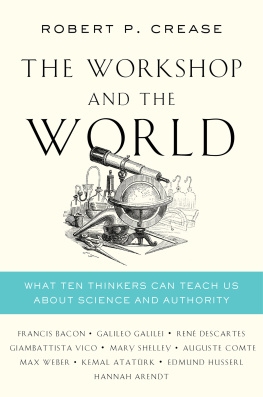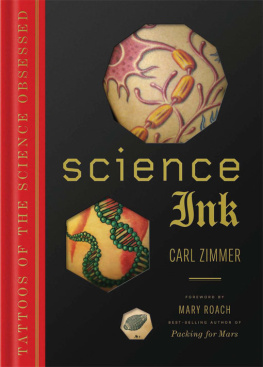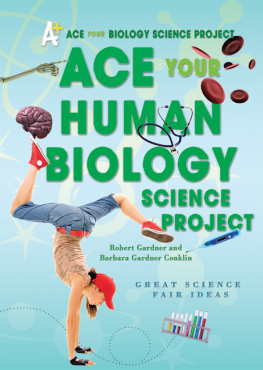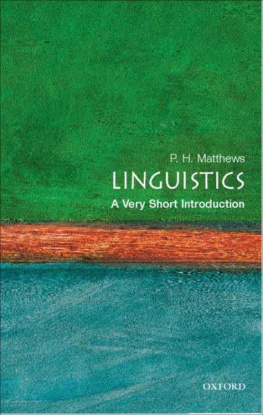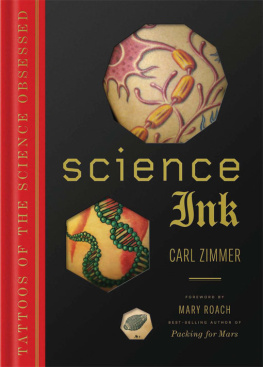Why Dont Spiders Stick to Their Webs?
This year, the scientifically curious reader can find answers to many hundreds of conundrums.
Financial Times
Matthews has done a heroic job in revealing the science behind a broad and entertaining range of questions. Ideal fodder for the curious mind.
Roger Highfield, author of Can Reindeer Fly? The Science of Christmas and The Science of HarryPotter: How Magic Really Works
[Matthews] takes things that seem hopelessly complicated and explains how simple they are.
Ian Stewart, author of Professor Stewarts Cabinet of Mathematical Curiosities
Robert Matthews is one of the best science writers around.
Duncan Watts, Principal Research Scientist at Yahoo!
A good mix of questions and answers, entertainment and education, it will make an excellent thinkers Christmas book.
Publishing News

A Oneworld Book
First published as Q & A by Oneworld Publications in 2005
First published as Why Dont Spiders Stick to Their Webs? in 2007
This ebook edition published 2011
Copyright Robert Matthews 2005, 2007
All rights reserved
Copyright under Berne Convention
A CIP record for this title is available
from the British Library
ISBN 9781851680027
Typeset by Jayvee, Trivandrum, India
Cover design by Dan Mogford
Interior illustrations copyright Jolyon Troscianko 2007
Printed and bound in Denmark by Norhaven
Oneworld Publications
185 Banbury Road
Oxford, OX2 7AR
England
Learn more about Oneworld. Join our mailing list to find out about our latest titles and special offers at:
www.oneworld-publications.com
To Auriol, Ben and Theo
Preface
People have the wrong idea about science not least scientists themselves. For the last few hundred years, a story has been doing the rounds to the effect that scientific discoveries are made by first formulating an hypothesis, then performing an experiment, and finally drawing a conclusion. The reality could hardly be more different. Some of the greatest discoveries radioactivity, genetics, quantum theory began with experiments whose outcome defied expectation. Others began with grand conclusions about how the universe is put together, with no clue about how to check it experimentally.
But many, perhaps even most, of the great discoveries in science began with a question. When Newton saw an apple fall to the ground in the garden of his mothers house (a story which Newton insisted was true), he asked himself how this could happen, and was duly rewarded by the discovery of the universal law of gravitation. When Einstein asked himself as a teenager what it would be like to ride upon a light-beam, his answer led directly to his Special Theory of Relativity, E = mc2 and all that. The American physicist Richard Feynman claimed that his bafflement over the rate of wobble of a dinner plate spinning through the air in a cafeteria ultimately led him to Nobel Prize-winning discoveries about sub-atomic particles.
Great minds, great discoveries but, on the face of it, rather trivial questions. The thing is, Nature herself doesnt know the meaning of the word trivial. From the birth of a spiral galaxy to water gurgling down a plughole all are manifestations of the primordial laws of physics. And time and again the history of science has shown that the key to understanding the universe often lies in asking a great question.
Over several years, I had the privilege of being asked to investigate a host of wonderfully varied questions about life, the universe and everything by readers of the Sunday Telegraph. From the origin of blue moons to the origin of the universe, the causes of tides to the fate of odd socks, they came my way in droves each week, my only regret being an inability to take on them all. Instead, I had to be selective, choosing ones whose answers are little-known, counter-intuitive, or have rather deeper implications than one might expect.
This book represents a selection of the many hundreds of questions I received over the years, whose answers I hope you will find especially entertaining and informative. Some deal with fundamental issues about the nature of reality and the limits to knowledge. Others deal with rather more run-of-the-mill matters like how best to remove ice from your car windscreen, and whether milk should go in before or after the tea.
Whether your taste is for the cosmic or the quotidian, what follows should convince you that the greatest myth of all is that science is merely what men in lab coats do for a living.
Robert Matthews
Acknowledgements
My first debt of gratitude is to Dominic Lawson, erstwhile Editor of the Sunday Telegraph, for suggesting the idea of a weekly section of science-related questions and answers. Were it not for his irritating refusal to accept hand-waving arguments and jargon, compiling it would have been a breeze. I was initially dubious about whether there would be enough suitable questions each week to sustain a weekly column, but I reckoned without the insatiable curiosity of Sunday Telegraph readers, for which I am especially grateful.
I would also like to thank Victoria Roddam, formerly of Oneworld Publications, and Morven Knowles at Telegraph Books for their enthusiasm about bringing the answers contained herein to a wider audience.
Finally, I am indebted to Fiona Bacon for selecting the questions for inclusion in this book, spotting blunders, categorizing the answers and generally doing many tasks that would have driven me nuts.
Chapter 1

Mysteries of everyday life
? | Why is the place you want on a map so often at the edge? |
Whenever I encounter one of these little frustrations of everyday life, I apply the maxim of Ian Flemings character Goldfinger: once is happenstance, twice is a coincidence but three times is enemy action. That is, if the little irritation in question crops up often enough to make you suspect there is some malign force at work, you are probably right. The frustration of finding the place one is looking for in awkward parts of the map is a case in point: it happens so often that it looks very much like a manifestation of Murphys Law, according to which If something can go wrong, it will. This suspicion is confirmed by some simple school geometry. Picture a square map, with the awkward bit being the strip-like region around its perimeter. Surprisingly, even if the width of this strip-like region is just one-tenth that of the whole map, it mops up a prodigious thirty-six per cent of the total area. Thus, every time you look for some location of such a map, there is a better than 1 in 3 chance it will turn up in that bit around the edge. What fools us is the fact that although it looks pretty narrow, the region tracks the largest dimensions of the map, which gives it a surprisingly large total area.
The situation is marginally worse with road atlases, as they also have awkward bits to either side of the central crease. Doing the same geometrical sums, it turns out that for a typical atlas page, theres around a fifty per cent chance of a given location being inconveniently positioned on the page.
Cartographers have been trying to combat Murphys Law of Maps for years and have introduced innovations such as fold-out flaps on one edge of the map. These alter the geometry of the pages and thus the relative areas of map and awkward bits, though not by much. Fortunately, in 2002, that wonderful British institution the Ordnance Survey introduced the ultimate solution to Murphys Law of Maps, the OS Select service, which produces customized maps centred on anywhere in Britain.
Next page


